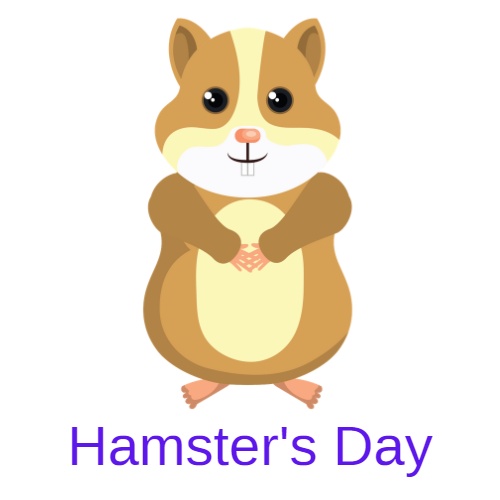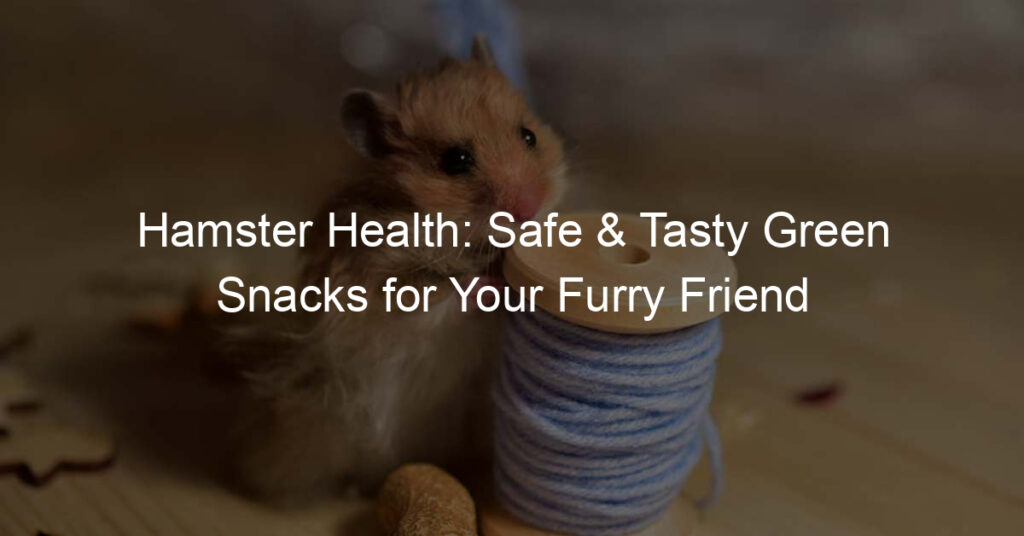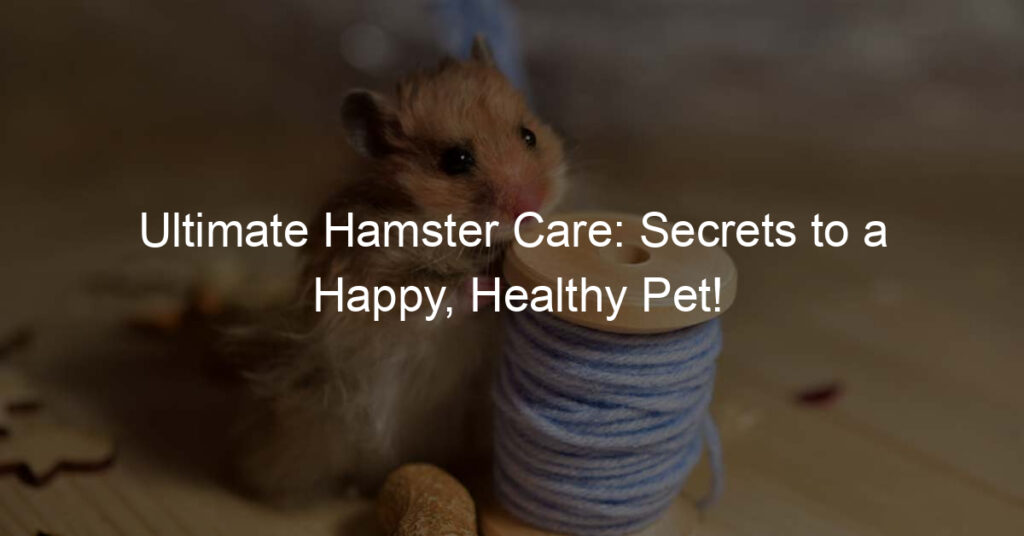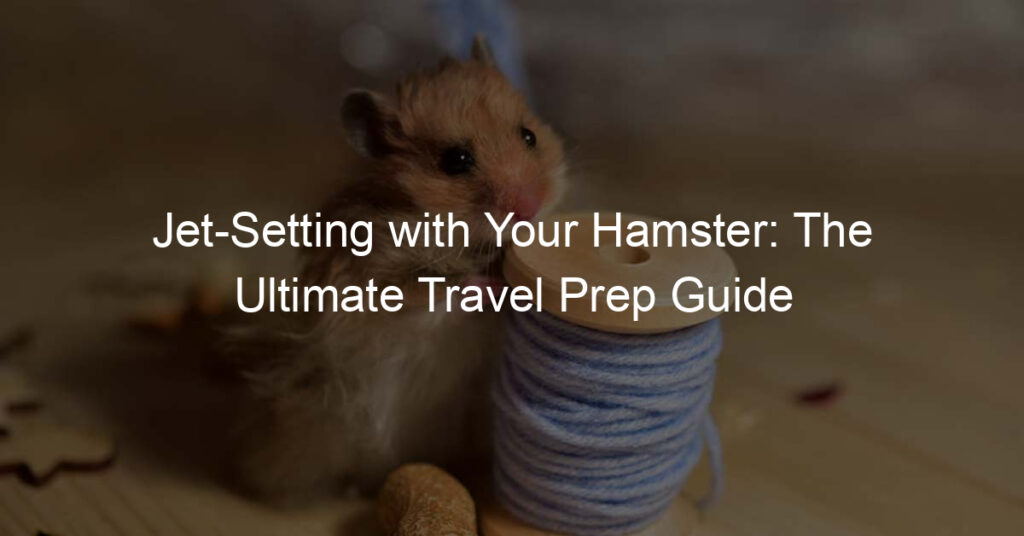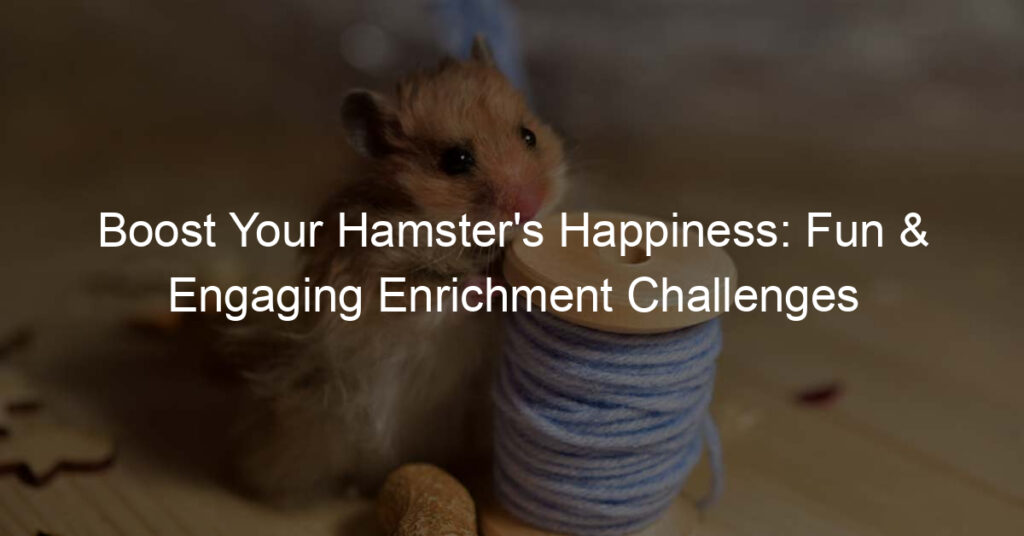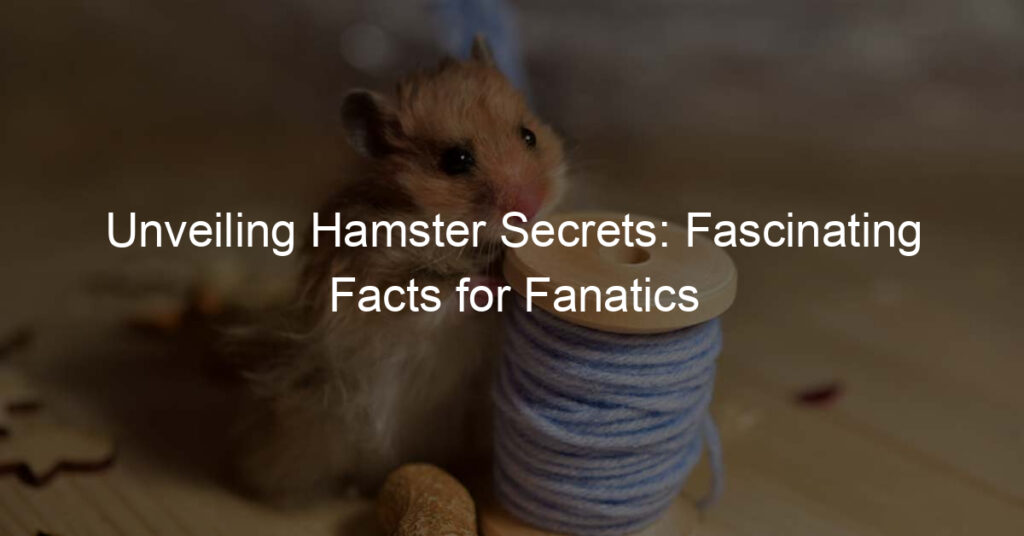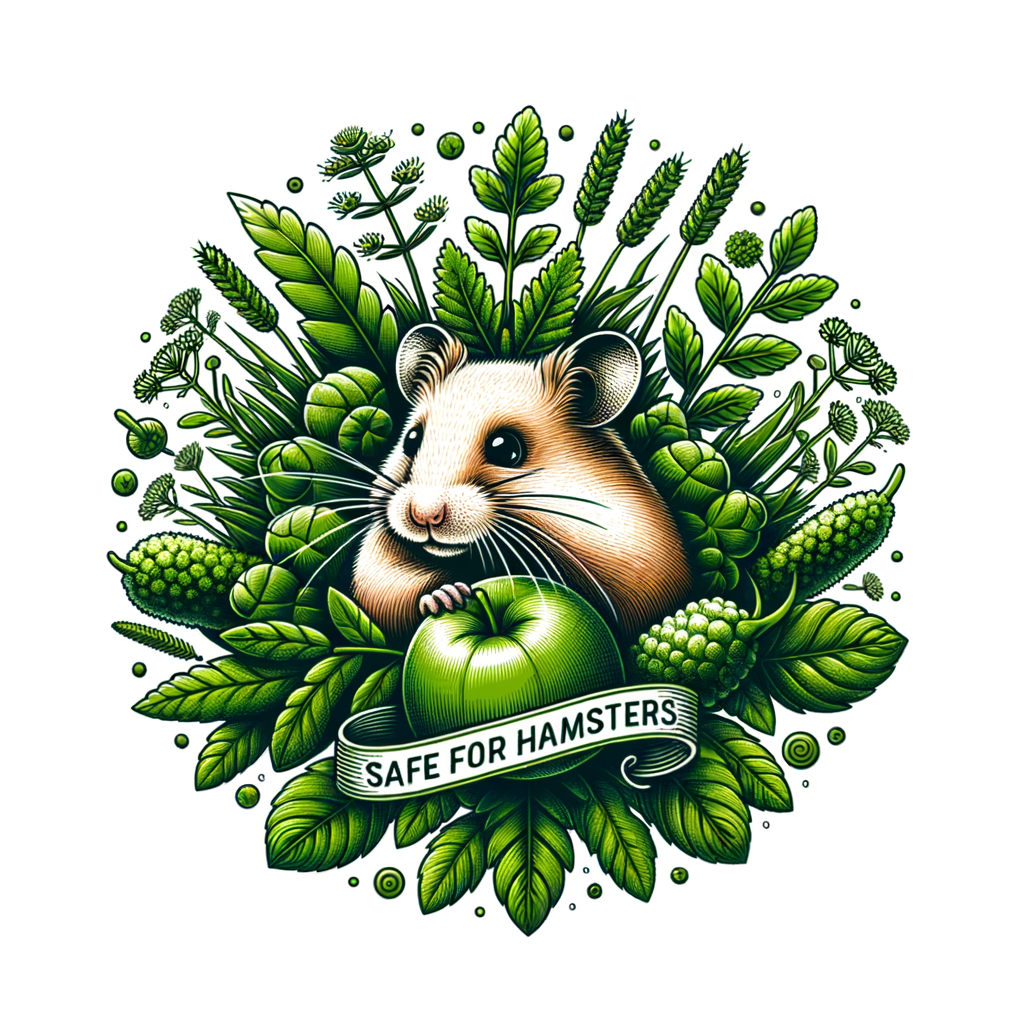
Introduction to Hamster Health and Nutrition
When it comes to the health and well-being of our furry friends, nutrition plays a crucial role. Hamsters, just like any other pet, require a balanced diet to stay healthy and active. In this section, we will delve into the importance of a balanced diet for hamsters and debunk some common misconceptions about their diet.
- Importance of a Balanced Diet for Hamsters
- Common Misconceptions about Hamster Diet
A balanced diet is key to ensuring your hamster’s health and longevity. Hamsters need a mix of proteins, carbohydrates, and fats, along with essential vitamins and minerals. A well-rounded diet can help prevent diseases, boost their immune system, and maintain a healthy weight. For instance, a diet rich in fiber helps in digestion, while vitamin C aids in wound healing and bone formation.
Many people believe that hamsters can survive on seeds alone. However, this is a misconception. While seeds are a part of their diet, they should not be the only food source. Hamsters also need fresh fruits, vegetables, and protein sources like mealworms or boiled eggs. Another common myth is that all fruits and vegetables are safe for hamsters. However, some, like onions and garlic, can be harmful to them.
In the following sections, we will explore more about hamster-safe plants, healthy snack options, and the benefits of organic food for hamsters. Remember, a well-fed hamster is a happy and healthy hamster.
Understanding Hamster-Safe Plants
When it comes to feeding your hamster, not all plants are created equal. Some plants can be harmful or even deadly to your furry friend. Therefore, it’s crucial to understand what makes a plant safe for hamsters.
What Makes a Plant Safe for Hamsters?
There are three key factors to consider when determining if a plant is safe for hamsters:
- Non-toxicity: The first and most important factor is non-toxicity. This means the plant should not contain any substances that could harm your hamster. Many plants contain toxins that can cause severe health problems in hamsters, including digestive issues, respiratory problems, and even death.
- Edibility: The second factor is edibility. A plant is considered edible for hamsters if it can be eaten without causing any harm. Some plants may not be toxic, but they can be difficult for hamsters to digest, leading to discomfort and health issues.
- Nutritional value: Lastly, the plant should have a good nutritional value. Hamsters need a balanced diet to stay healthy, and the plants they eat should contribute to this balance. They should provide essential nutrients like vitamins, minerals, and fiber.
Remember, just because a plant is safe for humans to eat doesn’t automatically make it safe for hamsters. Always research and consult with a vet before introducing a new plant into your hamster’s diet.
Understanding what makes a plant safe for hamsters is the first step towards providing a healthy and balanced diet for your pet. In the next section, we will explore some examples of hamster-safe plants.
Examples of Hamster-Safe Plants
When it comes to feeding your hamster, it’s essential to know that not all plants are safe. Some plants can be toxic or harmful to these little creatures. However, there are also plenty of plants that are perfectly safe and healthy for hamsters to consume. Here are a few examples:
- Broccoli: This green vegetable is not only safe for hamsters, but it’s also packed with vitamins and minerals. It’s a great source of vitamin C, which is essential for your hamster’s health. However, remember to give it in moderation as too much broccoli can cause bloating in hamsters.
- Spinach: Spinach is another hamster-safe plant that is rich in nutrients. It’s a good source of vitamin A, C, and K, as well as iron and calcium. But similar to broccoli, it should be given in small amounts to prevent digestive issues.
- Parsley: Parsley is a herb that’s safe for hamsters to eat. It’s high in vitamins A and C, which can boost your hamster’s immune system. However, due to its high calcium content, it should be given sparingly to prevent urinary problems.
Remember, while these plants are safe for your hamster, they should only make up a small part of their diet. The majority of their food should be a balanced hamster mix that provides all the nutrients they need. Always introduce new foods gradually and monitor your hamster for any changes in behavior or bowel movements.
Green Snacks for Hamsters: A Healthy Choice
When it comes to feeding your hamster, it’s important to make choices that promote their health and well-being. One such choice is to include green snacks in their diet. These snacks, which are typically made from vegetables, are not only delicious for your hamster but also packed with numerous health benefits.
Benefits of Green Snacks for Hamsters
Green snacks for hamsters are more than just a tasty treat. They are a powerhouse of nutrition that can significantly contribute to your hamster’s overall health. Here are some of the key benefits:
- High in nutrients: Green snacks are rich in essential vitamins and minerals that your hamster needs for optimal health. They provide a good dose of Vitamin C, which is crucial for your hamster’s immune system, and Vitamin A, which supports good vision and skin health.
- Low in fat: Unlike some other snacks, green snacks are low in fat. This makes them an excellent choice for maintaining a healthy weight in your hamster. Obesity can be a serious problem in hamsters, leading to a range of health issues, so it’s important to monitor their fat intake.
- Helps with digestion: Many green snacks are high in fiber, which aids in digestion. This can help prevent digestive problems in your hamster, such as constipation and bloating. A healthy digestive system is key to a happy and active hamster.
In conclusion, green snacks are a healthy and beneficial addition to your hamster’s diet. They provide essential nutrients, help maintain a healthy weight, and support good digestion. So next time you’re shopping for hamster food, don’t forget to include some green snacks in your basket.
Examples of Green Snacks for Hamsters
When it comes to feeding your hamster, it’s important to provide a balanced diet that includes a variety of foods. One of the best ways to ensure your hamster is getting the nutrients they need is by incorporating green snacks into their diet. Here are a few examples of green snacks that are safe and healthy for hamsters:
- Peas: Peas are a great source of vitamins A, C, and K, as well as fiber. They are also low in calories, making them a healthy snack option for your hamster. You can serve them raw or cooked, but make sure they are cooled down before feeding them to your hamster.
- Green beans: Green beans are another excellent green snack for hamsters. They are packed with vitamins and minerals, including vitamin C, vitamin K, and manganese. Green beans can be served raw or cooked, but remember to remove any strings before feeding them to your hamster.
- Brussels sprouts: Brussels sprouts are a nutritious and tasty snack for hamsters. They are high in fiber, which can help with digestion, and they also contain vitamins C and K. However, they should be given in moderation as they can cause gas in some hamsters.
Remember, it’s important to introduce new foods to your hamster’s diet gradually to avoid upsetting their stomach. Always monitor your hamster after feeding them a new food to ensure they don’t have any adverse reactions.
Organic Hamster Food: A Natural Alternative
When it comes to feeding your hamster, you want to ensure they’re getting the best nutrition possible. One way to do this is by choosing organic hamster food. This natural alternative offers a range of benefits for your furry friend.
Benefits of Organic Hamster Food
Organic hamster food is made from ingredients that are grown without the use of harmful chemicals or pesticides. This means it’s not only better for your hamster, but also for the environment. Let’s take a closer look at some of the key benefits of organic hamster food:
- No harmful chemicals or pesticides: Traditional hamster food can contain traces of chemicals and pesticides used in farming. These substances can be harmful to your hamster’s health. Organic food, on the other hand, is free from these harmful substances, making it a safer choice.
- More nutrients: Organic food is often richer in nutrients than non-organic food. This is because organic farming methods help preserve the nutritional content of the food. By choosing organic, you’re ensuring your hamster gets all the vitamins and minerals they need to stay healthy.
- Better taste: Many hamster owners find that their pets prefer the taste of organic food. This could be because organic food is fresher and more natural, leading to a better taste and smell. A tasty diet can help encourage your hamster to eat regularly, which is important for their health.
As you can see, organic hamster food is a great choice for your pet. It’s free from harmful chemicals, packed with nutrients, and often tastes better too. So why not give it a try and see the difference it can make to your hamster’s health and happiness?
Examples of Organic Hamster Food
Feeding your hamster organic food is a great way to ensure they’re getting the best nutrition possible. Here are some examples of organic hamster food that you can easily incorporate into your pet’s diet:
- Organic Hamster Pellets: These are specially formulated to provide a balanced diet for hamsters. They are made from organic ingredients and do not contain any harmful chemicals or pesticides. Organic hamster pellets are packed with essential nutrients that your hamster needs to stay healthy and active.
- Organic Fruits and Vegetables: Fresh fruits and vegetables are an excellent source of vitamins and minerals for your hamster. Organic options are free from harmful pesticides and chemicals, making them a safer choice. Some hamster-friendly fruits and vegetables include apples, pears, carrots, and broccoli. Remember to wash them thoroughly before feeding to your pet.
- Organic Seeds and Nuts: Seeds and nuts are a favorite snack for many hamsters. Organic seeds and nuts, such as sunflower seeds, pumpkin seeds, and almonds, are a great source of protein and healthy fats. However, they should be given in moderation as they are high in calories.
By incorporating these organic foods into your hamster’s diet, you can ensure they are getting a variety of nutrients while avoiding the potential risks associated with non-organic foods. Remember, a balanced diet is key to a healthy and happy hamster.
Conclusion: The Importance of a Balanced Hamster Diet
As we reach the end of our exploration into hamster health and nutrition, it’s important to reflect on the key lessons we’ve learned. The health of our furry friends is directly tied to the food they consume, and as responsible pet owners, we must ensure they receive a balanced diet.
- Key takeaways
- Final thoughts on hamster nutrition
Understanding what constitutes a balanced diet for a hamster is crucial. This includes a mix of hamster-safe plants, green snacks, and organic food. Remember, a diet too heavy in any one type of food can lead to health problems. Variety is key.
Hamsters love fresh vegetables and fruits, but these should only make up a small portion of their diet. The majority should be high-quality hamster pellets which provide all the essential nutrients.
Lastly, always ensure your hamster has access to fresh, clean water. Hydration is as important for them as it is for us.
Providing a balanced diet for your hamster is not just about keeping them healthy, it’s about enhancing their quality of life. A well-fed hamster is a happy hamster, and a happy hamster makes for a happy pet owner.
Remember, every hamster is unique and may have specific dietary needs. Always consult with a vet if you’re unsure about what to feed your pet.
In conclusion, a balanced diet is vital to a hamster’s health and longevity. By understanding and implementing the nutritional insights we’ve discussed, you can ensure your hamster lives a long, happy, and healthy life.
